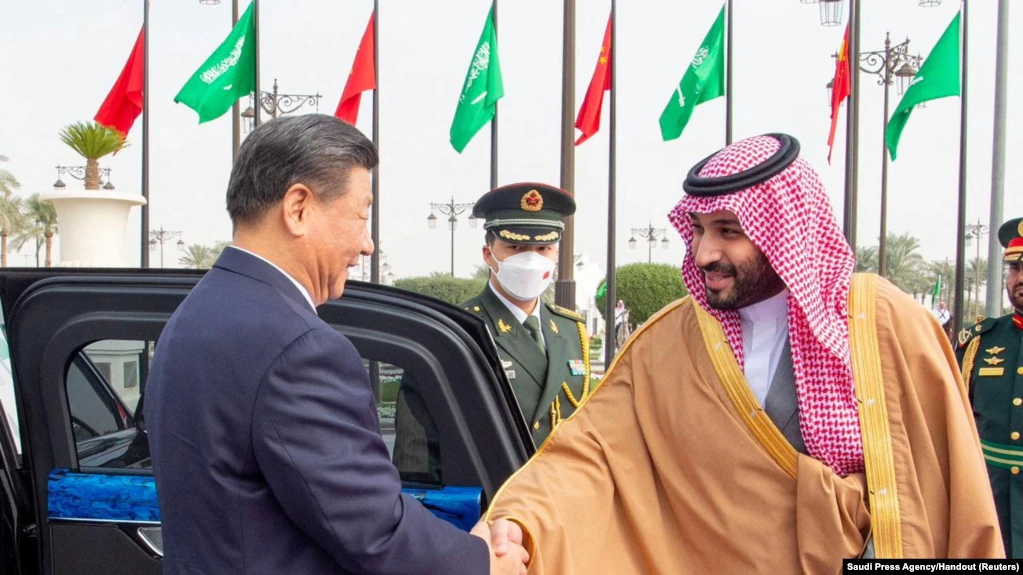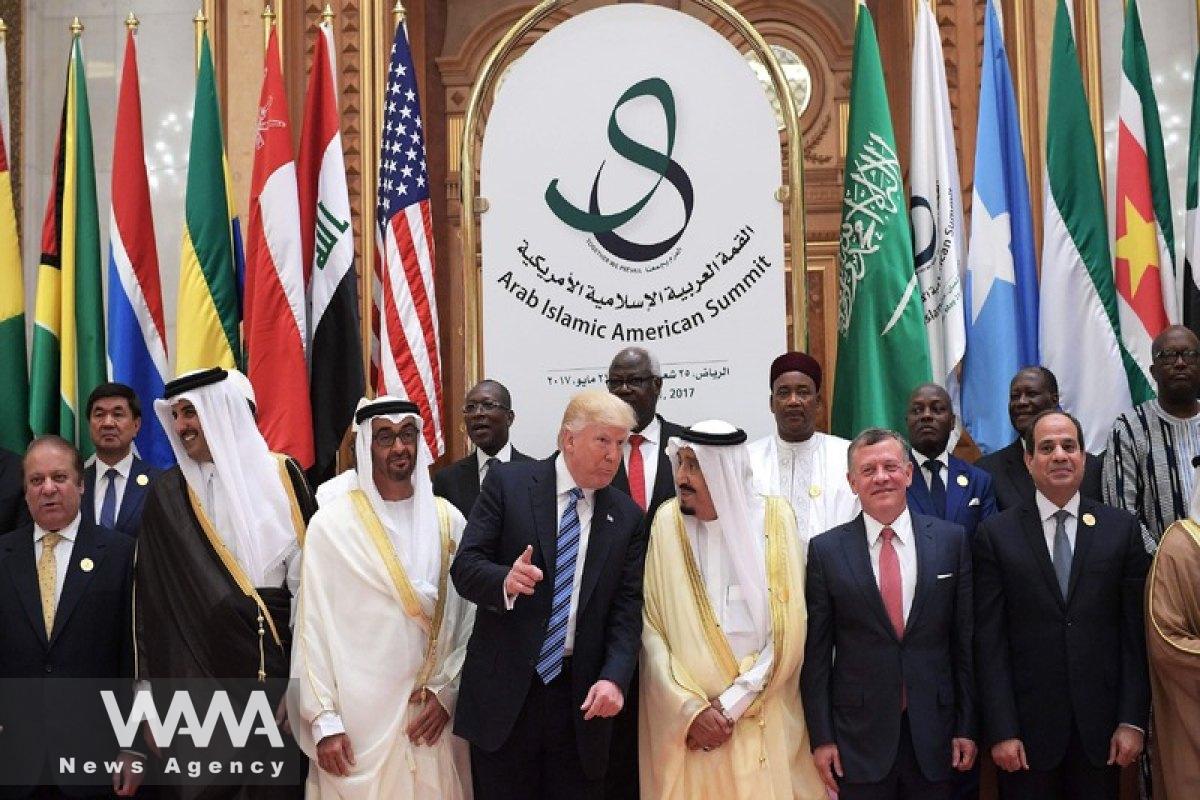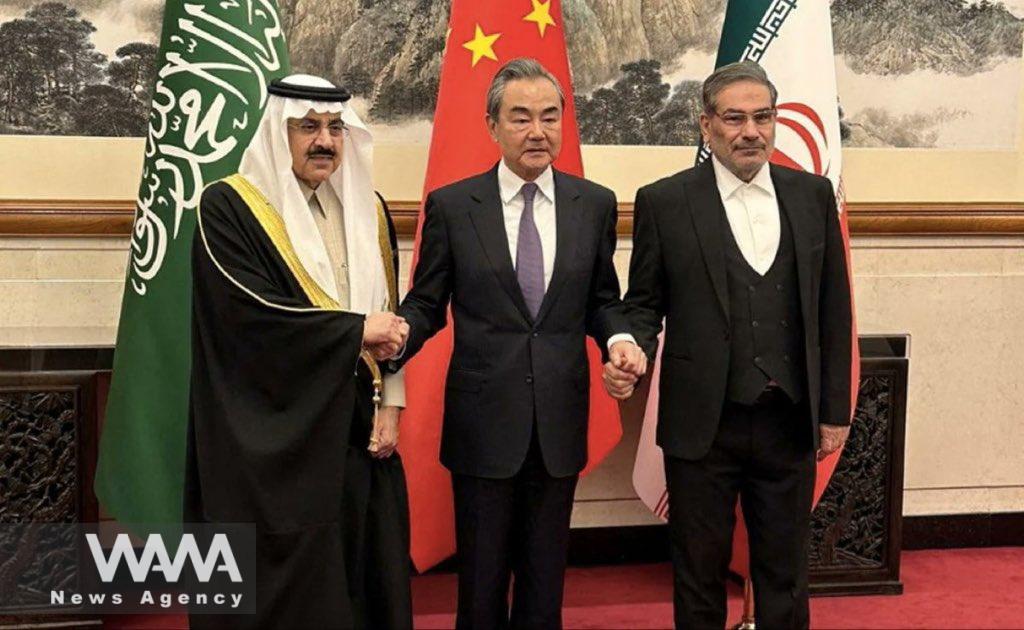The Arab NATO Dream Against Iran: A Delusion or Hidden Policy?
WANA (Sep 09) – Imagine you’re watching the news and hear that the U.S. and Israel are trying to form a large military alliance, like an “Arab NATO,” against Iran. You might wonder, “Does this mean a big war is coming?” or “What does this mean for Iran and the region?”
The truth is, despite these efforts, this idea remains only on paper, and there’s no sign of this alliance taking shape in reality. The idea of forming an Arab NATO to counter Iran has been around for years, but will this alliance ever come to fruition, or is it just a political game? This question takes us to the underlying reasons and divisions among Arab countries.
Disillusionment with the U.S.
In January 2022, when the United Arab Emirates (UAE) faced missile attacks from the Houthis, it expected a swift response from the U.S. A senior Emirati advisor bluntly stated: “Where were the Americans when we were under missile attack? If this same attack had happened to Tel Aviv, would their reaction have been just as slow and weak?”
This statement reflects the frustration of Arab countries with Washington. These nations no longer view U.S. military support as a reliable solution. Saudi Arabia, too, after years of seeking solid security guarantees from the U.S., is now experiencing similar doubts due to America’s reduced presence in the region.
Bruce Riedel, a senior expert at the Brookings Institution, says, “The reduction of U.S. military presence in the region has led Arab countries to seek other options for securing their safety.”
China, the Replacement for the U.S.?
Arab countries are now turning to China as a key player in the region.
Zhao Lijian of China’s Foreign Ministry emphasized that Beijing seeks peace and stability through dialogue. This approach is appealing to Arab nations that are unwilling to get involved in endless wars, as they no longer want to engage in continuous military conflicts.

Saudi Crown Prince Mohammed Bin Salman shakes hands with Chinese President Xi Jinping during his welcome ceremony in Riyadh, Saudi Arabia, Dec. 8, 2022. Saudi Press Agency / WANA News Agency
The Abraham Accords and the Israeli Dilemma
Some analysts believe that the rapprochement between Arab countries and Israel, especially through the “Abraham Accords,” which normalized relations between several Arab states and Israel, might help form such an alliance. However, the evidence points in the opposite direction.
Elliott Abrams, a Middle East expert, says, “None of the Arab countries are willing to go to war with Iran for the sake of Israel.”
This statement highlights a reality often overlooked in surface-level analyses: Arab countries, particularly those in the Gulf, fear direct conflict with Iran. Even with closer ties to Israel, they are not willing to jeopardize their security for Israeli interests.
Why Has the Arab NATO Stalled?
The idea of an Arab NATO is still being pursued by some regional and international powers, but several reasons have hindered its realization.
One of the main reasons is the deep divide among Arab countries. For instance, despite improving relations after the Gulf crisis, Qatar and Saudi Arabia still have many disagreements.
Dr. Fawaz Gerges from the London School of Economics (LSE) says, “Arab countries have differing views on fundamental issues and cannot unite on complex security matters.”

Arab Islamic American Summit 2017
Shifting Strategies of Arab Countries
It appears that Arab nations are changing their defense strategies. Given recent advancements in military and cyber technologies, these countries are focusing on strengthening their cyber capabilities and modern warfare techniques, rather than joining traditional military alliances. In particular, the use of missile defense systems and advanced technologies as a defensive tool against potential threats from Iran or other regional powers has become a priority.
Kenneth McKenzie, the former commander of U.S. Central Command (CENTCOM), stated in one of his speeches, “New technologies give smaller countries the ability to defend themselves against external threats without the need for large coalitions. This has led many Arab nations to focus on strengthening their independent defense capabilities through advanced technologies instead of joining an Arab NATO.”
A Future Without Arab NATO?
Considering all this evidence and expert opinions, it seems that the dream of an Arab NATO is unlikely to materialize in the short term. In addition to political rifts and disagreements on internal and regional issues, Arab nations are currently focused on enhancing their cyber and diplomatic capabilities.

Iran and Saudi Arabia agreed to resume diplomatic relations in a deal brokered by China, ending seven years of estrangement. Social Media / WANA News Agency
Rather than a military alliance, Arab countries and Iran may move toward more diplomatic avenues. China and other global powers will likely play key roles in reducing tensions and fostering regional cooperation.
A prominent international relations professor says, “The world is changing, and it’s no longer possible to achieve political goals through military power as in the past. Today, smart diplomacy is what leads.” This statement aptly illustrates that an alliance like NATO may no longer have a place in today’s world. The future will likely be shaped by diplomatic interactions and joint solutions to regional challenges.













